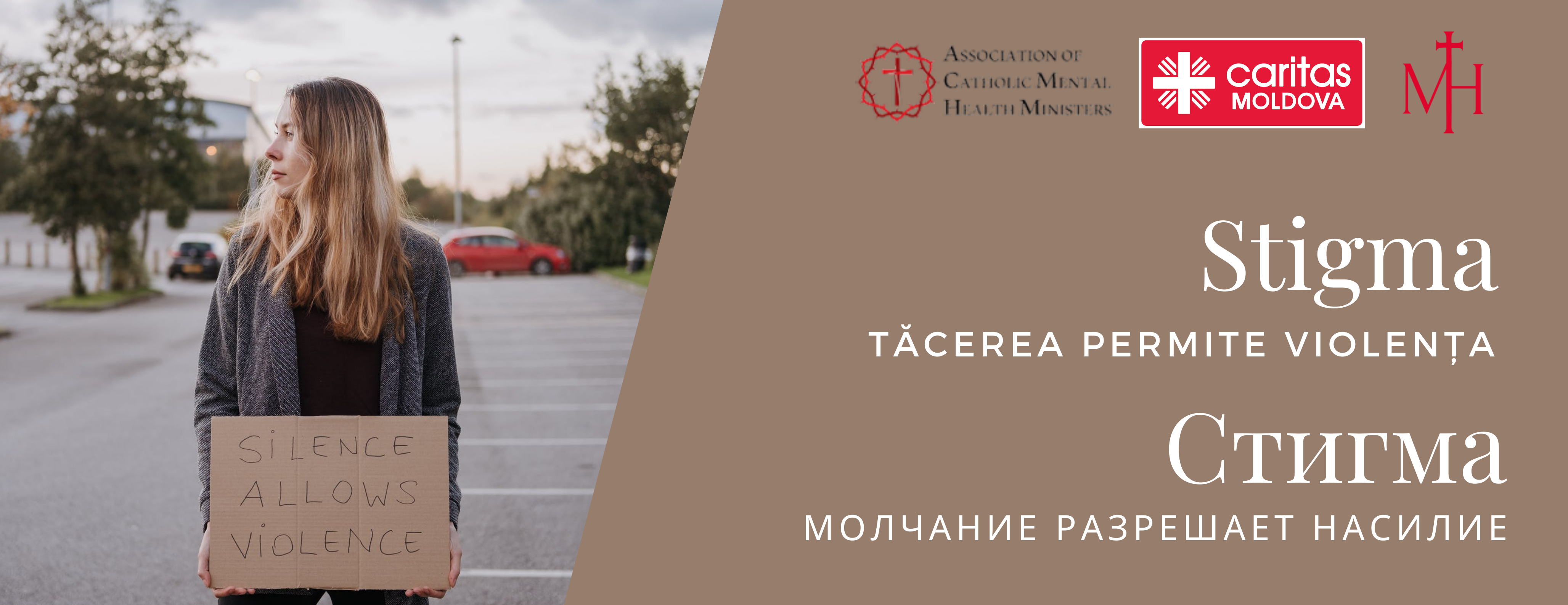Notice: Undefined index: subalias in /var/www/vhosts/caritas.md/httpdocs/views/news.php on line 11

What is stigma?
"The stigma of mental illness leaves an invisible mark, but it penetrates deeper than a sign made of the hottest iron" - Gunnar Christiansen
Stigma has four components:
1. Labeling a person suffering from a mental / psychological disorder.
2. Stereotyping people who suffer from that disorder.
3. Creating a division - a superior “new” and a devalued “her”, which leads to the loss of status in a community.
4. Discrimination based on that condition.
For many people, being diagnosed with a mental illness is like wearing a scarlet cape, an invitation to mockery and contempt. Stigma is a prejudice, just as it is a social prejudice - it is based on fear, and fear is based on ignorance.
Where does the stigma come from?
Stigma has been a part of our culture for a long time. It seems in our nature to have this separation between "us" and "them", when some individuals seem to be different.
The media, especially television, has done much to create and sustain a distorted view of mental illness. People are often portrayed as aggressive, dangerous and unpredictable.
Mental illness is also portrayed as comical. No one jokes about cancer or other diseases. Then why do we persistently see how mental illness is ridiculed?
People constantly use words like crazy, psychopathic, schizophrenic, crazy without thinking that these words offend and inferior the mentally ill, perpetuating stigma.
The term "mental illness" itself implies a distinction of "physical illness" and suggests something that results from the person's guilt or choice, a condition that "is only in your head," rather than what it is, that is, a legitimate medical condition. But mental illness is not voluntary - people do not decide to suffer from it.
What are the consequences of stigma?
- Stigma is not just something that happens around us. It can be internalized over time and accepted as truth, which leads to shame, secrecy, and silence.
- As a result, individuals lose self-esteem and have difficulty making friends. People suffering from mental illness and their families report high isolation and loneliness. He constantly faces feelings of rejection and exclusion.
- Some have been denied housing, health care, health insurance, jobs, loans and other necessities because of their history of mental illness.
- We all have something to lose. Those with mental illness are deprived of opportunities to participate in society, and society loses the benefits that could be brought by their gifts and talents.
- False and negative portrayal of people suffering from mental illness encourages fear, distrust and distorted perceptions of mental illness, which is self-perpetuating in more stigma.
- The stigma can be even more destructive than the disease itself. The most serious consequence of the stigma is the fear and inability of people to ask for help.
The stigma therefore becomes a barrier between people and what they should be according to the will of the Lord.
Why is it important to talk about stigma?
- Mental illness is more common than we think.
- There is treatment and relief of the actual symptoms for the vast majority of mental illnesses, but many people are reluctant to seek help or even talk about it because of the fear of being inferior and discriminated against.
- As Christians, we know that God made us in His image and likeness, and that He sees us all as equal and precious in His sight. We know that God cares. The more appropriate question would be whether we care.
- We are part of the body of Jesus, so we have a responsibility to our Christian brothers and sisters and to what we do or do not do.
- Our silence, our ignorance and our inaction play a very big role in perpetuating the stigma of mental illness.
- Putting mental health into conversation reduces shame and increases hope and truth.
- We must realize that the stigma of mental illness is an enemy to the Christian community.
How can we lower the stigma barrier in the Christian community?
- Break the silence - discuss mental illness, share and listen to personal experiences.
- Invite people with mental illness to participate - to share their experiences and gifts. Get to know those who suffer from mental illness, not only from the disease they suffer from, but also as individuals.
- Be a friend and ally of those suffering from mental illness - a relationship with them will give you a deep understanding.
- Learn - educate yourself and your church community.
- Advocate for more education and support in your church community. Ask the church leaders for more information and support.
- Pay attention to what you say - be a role model.
- Influence others in a positive way by sharing information - helping others to better understand their mental health.
- Pray for those suffering from mental illness and their families.
- Get in touch with resources in your community.
- Speaks when you notice any misinformation - writes or calls the misinforming media sources and make them realize the consequences of their actions.
- You have always advocate against discrimination and unfair treatment of people suffering from mental illness.
Refuse to let the silence perpetuate the stigma. Refuse to be silent! Talk and fight!
Jesus never stigmatized those with mental illness or other disabilities. In fact, he said, "Blessed are the poor in spirit, for theirs is the kingdom of heaven." (Matthew 5: 3). Let us honor the word of the Lord in the fight against stigma.
